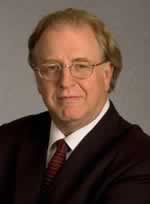 Inside the First Amendment
Inside the First Amendment
By Gene Policinski
First Amendment Center
The First Amendment provides for a free press — but that press depends largely on the trust and confidence of Americans to be truly effective, either as an information source or in its essential role as a watchdog on government.
Both roles would seem to require a measure of distance between those who make the news and those who report it. But recently that concept — and through it, the constitutionally implied duties of a free press — have taken a few hits.
This week a Chicago TV station fired a well-known reporter who was caught on videotape — aired by a rival station — wearing a two-piece swimsuit and towel at the home of a man at the focus of a story she was reporting. The reporter said that to advance the story and perhaps get closer to a potential news source, she accepted an invitation to visit from the man’s sister. In a published explanation, the reporter said she was already taking her two children to a swimming pool and decided to accept the invitation in part as an opportunity to mix work with family activity.
Earlier this month, Los Angeles newspapers carried reports about a romantic relationship between Mayor Antonio Villaraigosa and a Telemundo channel reporter and news anchor, Mirthala Salinas. In a bit of irony, the newspapers said Salinas was sitting in the anchor chair when she reported the mayor’s announcement of a breakup with his wife — without mentioning her own involvement in the “story.”
In the latest fallout from a June report by MSNBC.com that identified 143 journalists who have contributed to candidates or political organizations, on July 11 the Richmond Times-Dispatch suspended a reporter and a copy editor for violating the paper’s code of ethics by making such donations.
In all of these areas, critics have been hard-pressed to cite any instance in which news coverage was directly affected. And if there’s any good news about all of this, it’s that each indiscretion was reported to the public — by news organizations.
There’s no requirement in the First Amendment that journalists and news sources, particularly in government, automatically be antagonists. But there certainly is the proviso that the press is not part of government, formally or informally.
Carried to a personal level — which is how reporters operate every day covering politics, officeholders and other subjects — that means maintaining a healthy skepticism about those on whom you report. Keeping that distance, mentally or physically, can be difficult.
One of the real concerns about “embedding” reporters with U.S. units during the first weeks of the Iraq War was that journalists could become “foxhole comrades.” It would be difficult, the worry was voiced, to write critically about someone who, say, had risked his life to save yours.
To a real degree, journalists were able to balance their jobs with their emotions and to report honestly about what they saw at the battlefront even as they empathized with difficulties and tragedies they observed. Reporters, editors and military leaders agreed in a follow-up Pentagon study that the embedding was as free as possible of both government interference and news bias or distortion.
Combined with other news reports from outside the battle zone, the invasion coverage is considered among the most comprehensive ever. As a nation, we learned about policy and personal sacrifice, about White House pronouncements and individual bravery.
As citizens, we trust journalists to do this all the time: Get close enough to the news to report accurately both good and bad, successes and failures, even as the reporters get to know the people and institutions on which they report. I believe that most of the time that is what happens.
Objective news reports, openly identified opinion and editorials, and commentator talk-fests on radio and TV all feed into the regular stream of information from a vigorous, engaged and trusted press that is vital to the health of our democracy. But belated disclosures of secret romances, the behind-the-scenes scent of political partisanship and casual forays at reporting from poolside do not.
Gene Policinski is vice president and executive director of the First Amendment Center, 1101 Wilson Blvd., Arlington, VA 22209. E-mail: [email protected].








